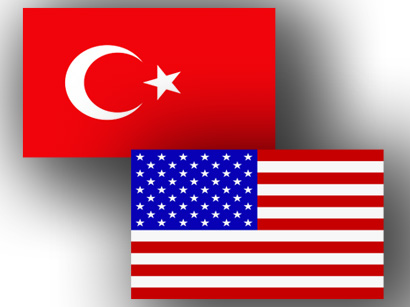Following almost nine months of negotiations between Turkey and the U.S., NATO allies reached an agreement on training and equipping moderate Syrian opposition groups that fight to topple the regime of President Bashar Assad, Daily Sabah reported.
Speaking at a press conference on Tuesday, Foreign Ministry spokesman Tanju Bilgiç said that the agreement protocol, which is designed to train the Free Syrian Army (FSA), will be signed at a meeting in the U.S.
Defense Minister İsmet Yılmaz is expected to meet U.S. officials at the White House Summit on Violent Extremism on Wednesday or Thursday. Bilgiç said that once the protocol is signed, practical steps will be taken at a time no further than next month.
The FSA has long been asking for more assistance in its fight against the Assad regime. There has been heavy fighting recently in northern Syria. The FSA still control parts of Aleppo, though government and its allied forces have been closing in.
Turkey has continuously expressed that a comprehensive strategy that includes safe and no-fly zones in Syria along with training opposition groups, is necessary for a permanent solution in the war in the neighboring country.
The program is expected to start in March and will reportedly last three years. After this time, a total of 15,000 Syrian opposition fighters are expected to have been trained in Turkey, Jordan and Saudi Arabia. Turkey is expected to host around 100 U.S. soldiers connected to the training. Turkey will also directly train between 500 and 2,000 opposition fighters a year.
Following a visit to Ankara by U.S. Vice President Joe Biden on Nov. 22, 2014, President Recep Tayyip Erdoğan and he agreed on Turkey's efforts to train and equip moderate Syrian opposition forces protecting their communities.
Furthermore, Chief of the General Staff Necdet Özel was scheduled to attend the security meeting in Jeddah, Saudi Arabia on Wednesday. The meeting will focus on the ISIS crisis in Syria and Iraq and other regional terrorism-related issues.
As part of its role in the anti-ISIS coalition, Turkey allowed Iraqi Kurdistan Regional Government (KRG) peshmerga forces to access its territory to enter the Syrian town of Kobani, which has recently been cleared of ISIS control. Turkey also deported over 1,000 foreign fighters, many of whom from the West either on request of their home country or after discovering their connection to the militant group. Furthermore, over 10,000 people are on the no-entry list of the country.
Meanwhile, Interior Minister Efkan Ala and representatives of other executive member states of the Organization of Islamic Cooperation (OIC) came together in Jeddah, Saudi Arabia on Sunday, in which the organization announced a package of urgent measures to prevent the rapid spread of terrorism, which has hit a number of OIC member states, and halt a surge of violence in the Muslim world. The executive committee of the OIC, which is comprised of members from Egypt, Senegal, Turkey, Saudi Arabia, Kuwait and Guinea along with the secretary-general, called for the development of an appropriate mechanism to face new trends of terrorism in member states.
The meeting comes in response to a call by OIC Secretary-General Iyad Madani to tackle terrorist attacks in the region. The meeting was chaired by Saudi Arabia and a number of mechanisms and strategies to fight terrorism and extremism were discussed. The meeting called for holding conferences, seminars and workshops with the participation of political leaders, clerics, community leaders, scholars and experts to discuss the best possible ways of responding to terrorist threats, electronic security and to work with OIC member states to develop a new approach and treatment of sectarian violence.






